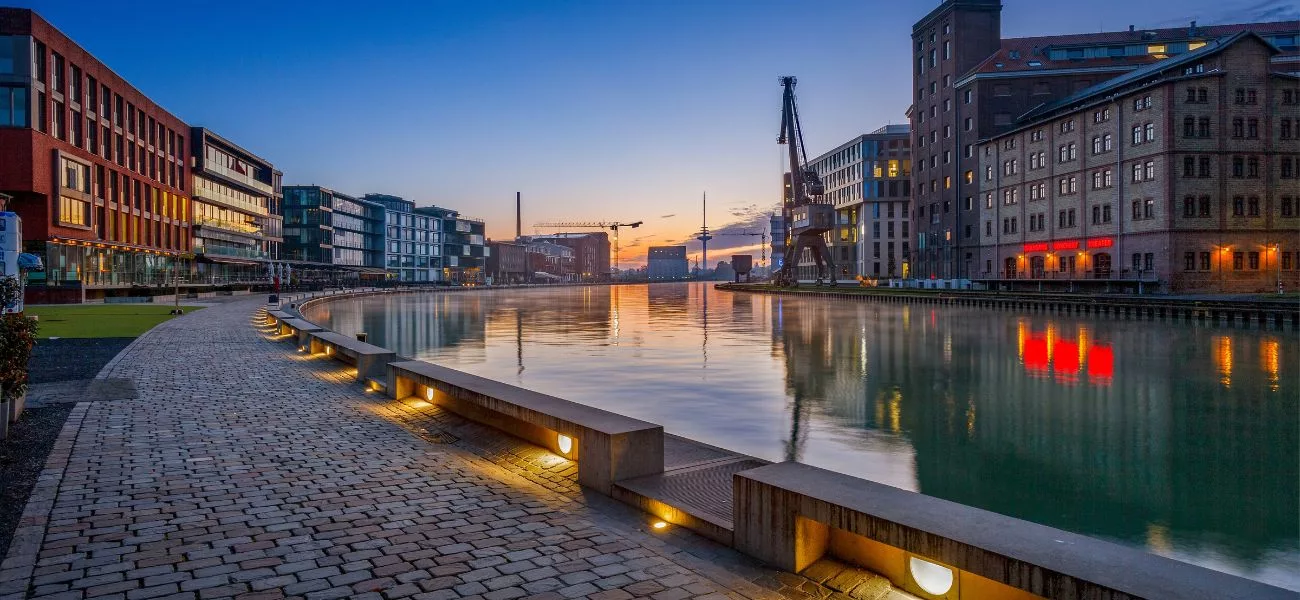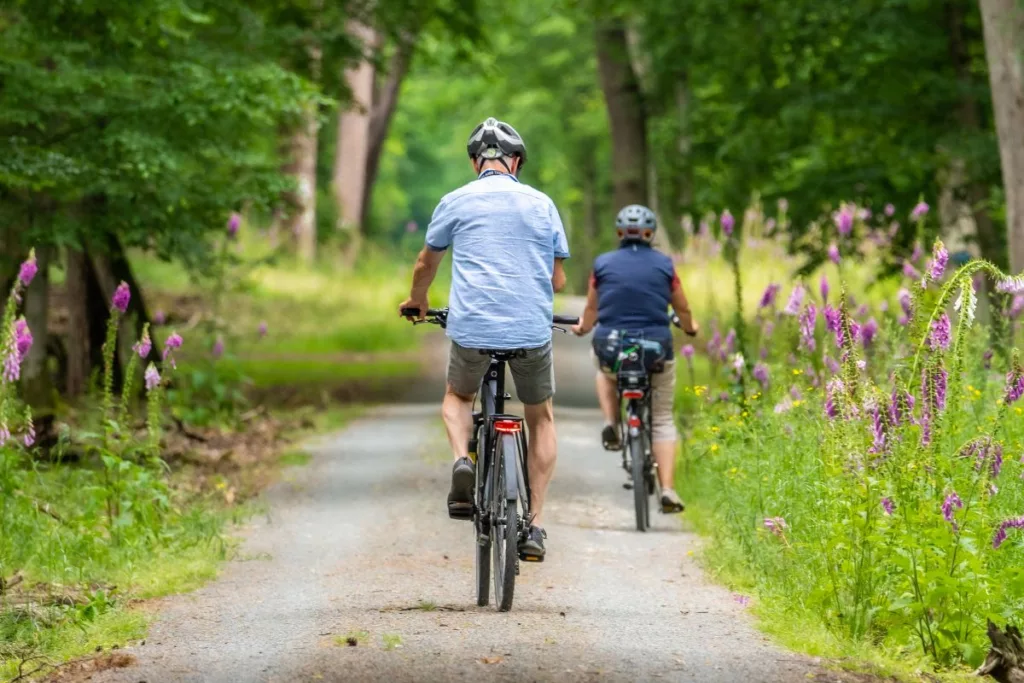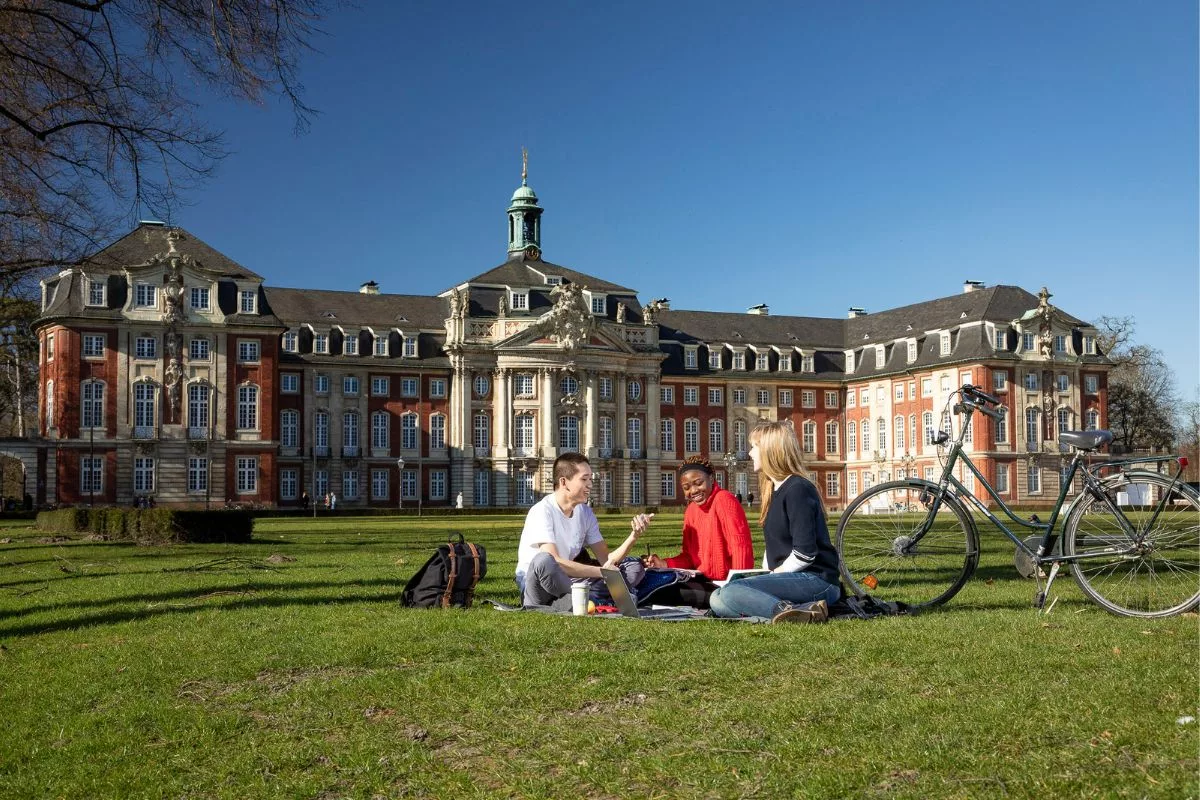Green Mobility Guide
Münster

Münster is easy to reach by train from Germany’s and Europe’s major cities. The train journey from Hamburg or Cologne to Münster takes two hours, from Berlin it is about 3.5 hours. Enschede, as part of the international Euregio in the Netherlands, is just over an hour away.
The Dortmund-Ems Canal is not only a popular recreational hotspot. It connects Münster to the European network of waterways and makes it possible to reach Münster by boat.
You can also travel to Münster comfortably and cheaply by coach. There are connections from European and German cities. Cycling is the main mode of transport in the city and allows you to enjoy the beauty of the old monastery town. Münster is very bicycle friendly. Having learnt from its Dutch neighbours, the city is creating more and more streets where cyclists have the right of way. From the university buildings to the vibrant nightlife, Münster is easily accessible by bike.
A large number of well-signposted cycle routes (the European Cycle Route R1 from Calais to St Petersburg, the Route of the 100 Castles, the Peace Route) allow you to enjoy the beautiful Münsterland park and castle landscape. With more than 100 castles and beautiful gardens, the architecture, parks and landscape form a unique tapestry.

Tips & Recommendations
Train
Deutsche Bahn https://int.bahn.de/en
Bus
Stadtwerke Münster
https://www.stadtwerke-muenster.de/unterwegs/fahrplan
- Single Ticket from 2,20 Euro for a trip up to 90 minutes.
- Monthly Ticket 29 Euros for trips within Münster.
- Monthly Ticket “Deutschlandticket” 49 Euros for trips with regional buses and trains within Germany.
Bicycle tours in and around Münster
https://www.stadt-muenster.de/en/tourismus/bike-city/bicycle-tours
Bicycle rentals
https://www.stadt-muenster.de/en/tourismus/bike-city/bicycle-rental
Where to purchase a new or a used bicycle
Using a bike in Münster is very popular. Therefore there many bike shops everywhere. Looking for a used bike? https://fietsenboerse.de/en/bike-markets/muenster or https://www.kleinanzeigen.de/
Other cycling options
E-scooter from Tier, Bolt and Voi are to be found everywhere.
The Münster 2030 sustainability strategy aims to preserve the city so that future generations have the same resources and decision-making options.
More information available here.
Recycling
Recycling is part of everyday life in Münster. It is good to get to know the basics of the system.
Recycling bottles
Many bottles in Germany are pledged and you can return used bottles and cans to all retail return vending machines. More details here.
Sustainability plays a central role in the activities of the University of Münster. For more information in this regard please click here.
Welcome Guide
With more than 45,700 students, the University of Münster is one of the largest universities in Germany. Thanks to its extensive range of degree programmes, multifaceted research profile, and the atmosphere and quality of life in Münster, the University attracts students and researchers from Germany and around the world. The University of Münster offers an extensive range of academic options with over 120 subjects and about 280 degree programmes. Münster University values the close relationship between research and teaching, counselling services and high student graduation rates.
It’s hard to imagine life in Münster without the University. A fifth of the 320,000 “Münsteraner” are students. The flair and feeling of student life is everywhere you look – on the streets and in Münster’s diverse cultural programme. Münster, hailed as the ‘Bicycle Capital of Germany,’ underscores its commitment to sustainable transportation with numerous biking facilities.
